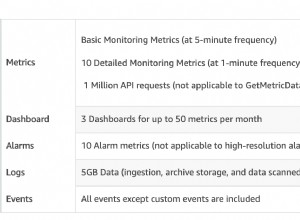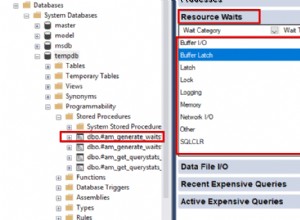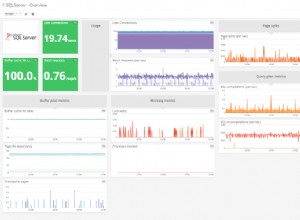He construido una prueba que compara OFFSET, cursores y ROW_NUMBER(). Mi impresión de ROW_NUMBER(), que sería consistente en velocidad independientemente de dónde se encuentre en el conjunto de resultados, es correcta. Sin embargo, esa velocidad es dramáticamente más lenta que OFFSET o CURSOR, que, como también fue mi impresión, son más o menos iguales en velocidad, y ambos se degradan en velocidad a medida que se avanza hacia el final del resultado.
Resultados:
offset(100,100): 0.016359
scroll(100,100): 0.018393
rownum(100,100): 15.535614
offset(100,480000): 1.761800
scroll(100,480000): 1.781913
rownum(100,480000): 15.158601
offset(100,999900): 3.670898
scroll(100,999900): 3.664517
rownum(100,999900): 14.581068
El script de prueba usa sqlalchemy para configurar tablas y 1000000 filas de datos de prueba. Luego usa un cursor psycopg2 para ejecutar cada instrucción SELECT y obtener resultados con los tres métodos diferentes.
from sqlalchemy import *
metadata = MetaData()
engine = create_engine('postgresql://scott:[email protected]/test', echo=True)
t1 = Table('t1', metadata,
Column('id', Integer, primary_key=True),
Column('d1', String(50)),
Column('d2', String(50)),
Column('d3', String(50)),
Column('d4', String(50)),
Column('d5', String(50))
)
if not engine.has_table('t1'):
conn = engine.connect()
t1.create(conn)
# 1000000 rows
for i in range(100):
conn.execute(t1.insert(), [
dict(
('d%d' % col, "data data data %d %d" % (col, (i * 10000) + j))
for col in range(1, 6)
) for j in xrange(1, 10001)
])
import time
def timeit(fn, count, *args):
now = time.time()
for i in xrange(count):
fn(*args)
total = time.time() - now
print "%s(%s): %f" % (fn.__name__, ",".join(repr(x) for x in args), total)
# this is a raw psycopg2 connection.
conn = engine.raw_connection()
def offset(limit, offset):
cursor = conn.cursor()
cursor.execute("select * from t1 order by id limit %d offset %d" % (limit, offset))
cursor.fetchall()
cursor.close()
def rownum(limit, offset):
cursor = conn.cursor()
cursor.execute("select * from (select *, "
"row_number() over (order by id asc) as rownum from t1) as foo "
"where rownum>=%d and rownum<%d" % (offset, limit + offset))
cursor.fetchall()
cursor.close()
def scroll(limit, offset):
cursor = conn.cursor('foo')
cursor.execute("select * from t1 order by id")
cursor.scroll(offset)
cursor.fetchmany(limit)
cursor.close()
print
timeit(offset, 10, 100, 100)
timeit(scroll, 10, 100, 100)
timeit(rownum, 10, 100, 100)
print
timeit(offset, 10, 100, 480000)
timeit(scroll, 10, 100, 480000)
timeit(rownum, 10, 100, 480000)
print
timeit(offset, 10, 100, 999900)
timeit(scroll, 10, 100, 999900)
timeit(rownum, 10, 100, 999900)




